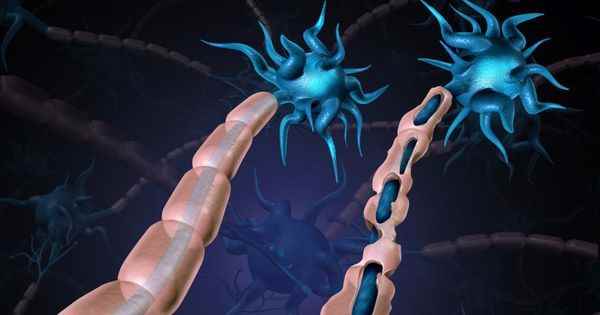Posted ,
Reading 2 mins.
A new study by American researchers points to the Epstein-Barr virus, responsible according to them for multiple sclerosis. This is the first time that a pathogen has been identified in this pathology.
This discovery raises the hope of the possible development of a future treatment, which would make it possible to cure this disease affecting approximately 2.8 million people in the world.
A very common virus implicated in other diseases
The study, published this week in the prestigious journal Science, shows that this virus is necessary for the development of multiple sclerosis, even if all infected people do not develop this disease.
The hypothesis had been studied for several years, but difficult to prove, in particular because this virus is very common, and the symptoms of the disease only begin about ten years after infection.
About 95% of all adults are infected with the Epstein-Barr virus (EBV), which can also cause other illnesses, such as mononucleosis.
Hope for a cure
It is “the first study providing convincing evidence of causation“said Alberto Ascherio, lead author and professor of epidemiology at the Harvard School of Public Health.”This is an important step, as it suggests that most cases of multiple sclerosis could be prevented by stopping Epstein-Barr virus infection.“, he added, quoted in a press release. “Targeting this virus could lead to the discovery of a cure“.
Genetic factors may play a role
The researchers followed for 20 year more than 10 million young adults enlisted in the US military, 955 of whom were diagnosed with multiple sclerosis during their service. According to this work, the risk of contracting multiple sclerosis increased 32 times after being infected with the Epstein-Barr virus, but remained unchanged after infection with other viruses. According to researchers at Stanford University, who published a commentary on the study in the journal Science, other factors, for example genetics, could play a role in whether or not you develop the disease.
The American company Moderna announced last week that it had started clinical trials on humans of a vaccine against the Epstein-Barr virus.
Other treatments being tested
Treatments are also already being tested. On January 3, the pharmaceutical company AB Science announced in a press release that it had obtained the green light from the National Medicines Safety Agency (ANSM) to begin trials of its treatment, masitinib, against a particularly worrying form: progressive form of multiple sclerosis.
The company has “received ANSM authorization to initiate a Phase III study […] evaluating masitinib in patients with primary progressive multiple sclerosis (PPMS) or non-active secondary progressive multiple sclerosis (nSPMS)“, she said in a communicated.
An autoimmune disease that varies greatly from patient to patient
Multiple sclerosis is an autoimmune disease of the central nervous system (brain and spinal cord). It causes a disruption of the immune system, which attacks myelin, the sheath used to protect nerve fibers.
We distinguish :
- The relapsing-remitting form, characterized by “flares” of the disease. During these flare-ups, patients experience the appearance of new symptoms or the worsening of symptoms already present.
- The progressive form, characterized by a constant and regular worsening of the symptoms of the disease, without a distinct flare or period of recovery. The rate of onset of severe, disabling and irreversible disability is much higher in the progressive forms of the disease than in the relapsing-remitting forms.
The disease is very variable from one patient to another but can lead to sequelae, and is one of the frequent causes of disability in young adults.
.
dts1
